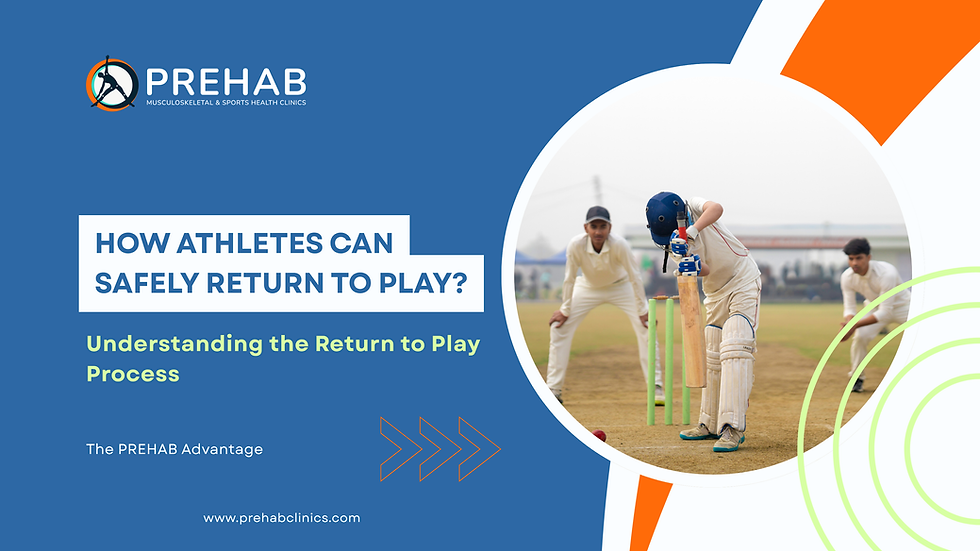Menopause and Body Aches: What Your Hormones Are Trying to Tell You?
- Prehab Healthcare
- Apr 16, 2025
- 2 min read
Hemashree K, Sports Physio
When we hear the word menopause, hot flashes, mood swings, and hormonal changes often come to mind. But there is another aspect that tends to fly under the radar — those unexplained joint and muscle pains. Many women in their 40s and 50s begin to feel stiffness, soreness, or reduced flexibility. What is often dismissed as "just aging" may actually be a result of physical changes linked to menopause — a common but underrecognized effect of hormonal shifts during this stage.

Feeling stiff, sore, and sluggish? Here’s why
Estrogen is a key female hormone that plays a major role not just in reproductive health, but in keeping your entire body running smoothly. It helps support your joints, muscles, and bones — things we don’t often associate with hormones. As estrogen levels begin to drop during menopause, your body may start to feel unfamiliar. You might notice a stiff neck, sore knees, or tight shoulders. Everyday movements can feel heavier, and flexibility might not be what it used to be. Behind the scenes, inflammation increases, muscles weaken, and bone strength gradually declines. Over time, these physical changes can lead to discomfort, fatigue, and a disconnect from your own body. Yet, this connection between menopause and physical aches is often overlooked — even though nearly all women’s experience it.
The power of right Physical activity
The right kind of exercise can be an effective and game- changer when it comes to managing menopause-related aches. Targeted exercise programs — like strength training, stretching, and weight-bearing exercises — help ease joint stiffness, rebuild muscle, and improve posture and balance. These activities also slow down bone loss and enhance coordination, reducing the risk of falls. Beyond physical benefits, staying active boosts energy levels and restores a sense of control and confidence in your body. It's not about intense workouts — it's about consistent, mindful movement that supports your changing needs.
Pain isn’t just physical
Persistent discomfort can spill over into other parts of life — robbing you of good sleep, dampening your mood, and making simple tasks feel like burdens. When your activity levels dip, it leads to deconditioning, weight gain, and more fatigue — creating a frustrating cycle. The good news? Early attention to these issues through guided exercise programs can reverse this pattern and restore strength and well-being.

Let’s talk about it
If you’re in your 40s or 50s and notice new aches or shifts in how your body feels, don’t just shrug it off. These changes might be connected to the hormonal transition of menopause — and you’re far from alone. Acknowledging the link between menopause and physical health is the first step. With guidance, this phase of life can be one of rediscovery — filled with energy, resilience, and renewed confidence. You deserve to feel good in your body again — and exercise can help get you there.
At PREHAB, we work exclusively with women’s health by focusing on lifestyle, exercise, and nutritional well-being. Our programs are designed to address physical aches and pains, especially during transitional stages like menopause. If you or someone you know needs support, we’re here — ready to help you feel strong, supported, and at home in your body once again.



Comments